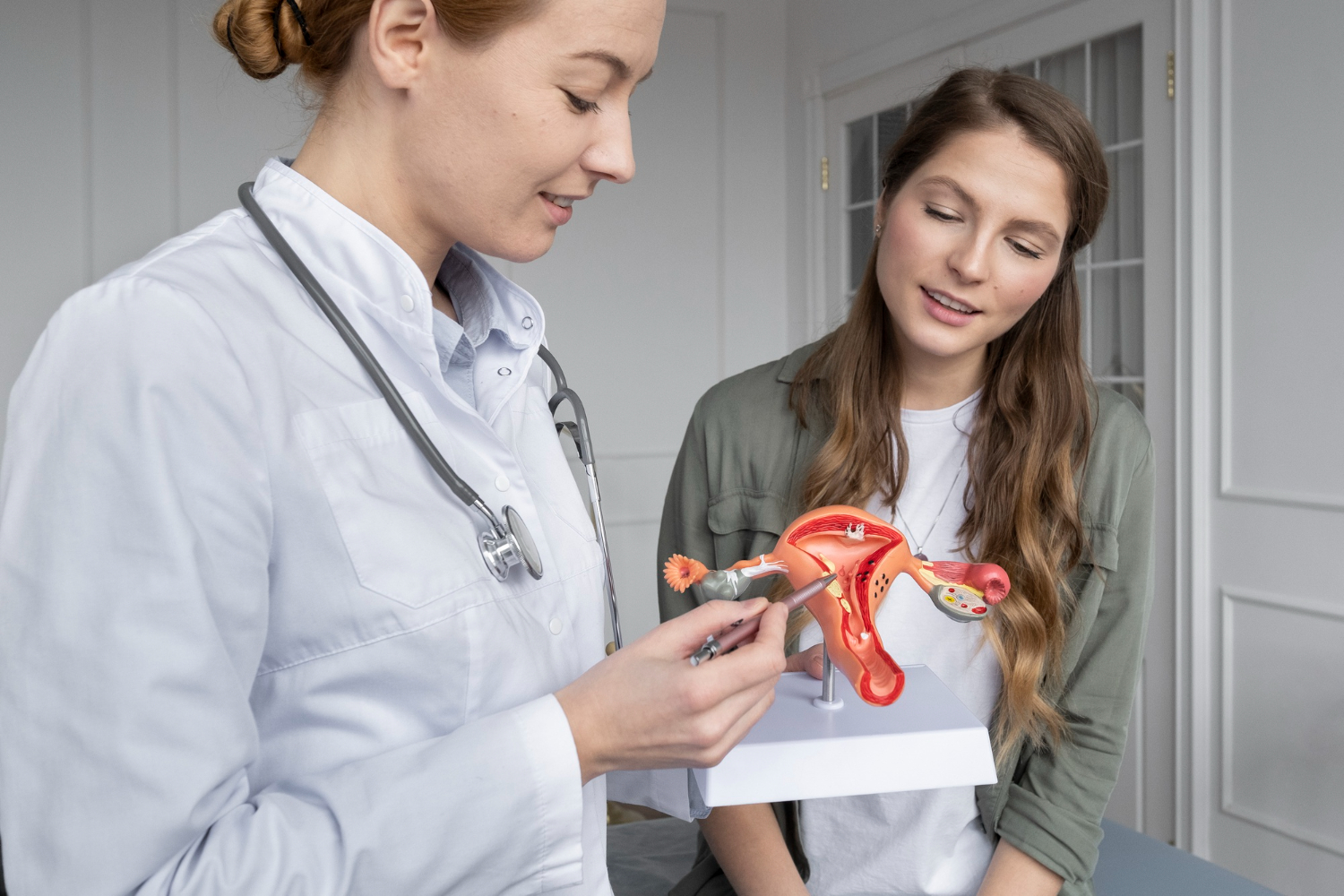Fibroids, or uterine leiomyomas, act as benign growths that develop throughout the muscular wall of the uterus. Fibroids appear in different sizes, from minute inaudible nodules to substantial masses that alter the uterus structure. Medical science has not yet determined fibroid origins, yet hormonal shifts mainly affected by estrogen and progesterone help these growths expand.
The medical community classifies fibroids as tumors, yet they do not qualify as cancerous. After menopause begins and throughout life, these growths tend to stay the same or smaller. The tumors never move beyond their initial position.
Do Fibroids Lead to Cancer?
One of the biggest concerns among women diagnosed with fibroids is whether these growths can turn into cancer. The simple answer is no fibroids are not linked to an increased risk of uterine cancer.
However, a rare type of cancer called leiomyosarcoma can develop in the uterus. Leiomyosarcoma is an aggressive cancer that originates in the same type of muscle tissue as fibroids, but it is completely separate from benign fibroids. Research has not found any strong evidence to suggest that fibroids evolve into cancerous tumors.
How Common Is Uterine Cancer in Women With Fibroids?
Uterine cancer, particularly endometrial cancer, is a concern for many women. However, studies show that women with fibroids do not face a significantly higher risk of developing uterine cancer than those without fibroids. The likelihood of a fibroid being cancerous is extremely low—less than one in a thousand cases. Most fibroids remain benign throughout a woman’s lifetime.
Cancer usually develops independently of existing fibroids in cases where they are present. People must observe their fibroid symptoms since they must get medical advice in case of unexpected or varied symptoms.
Symptoms That Require Medical Attention
Fibroids are not usually harmful, but they might have painful symptoms and result in severe complications. Menstruation can make it difficult to empty the bladder, causing constipation, as well as frequent urination because of pressure on adjacent organs.
Pain in the pelvis and lower back and pain during sexual intercourse are also frequent. Heavy periods can also result in exhaustion and other medical issues. While the fibroids are not directly threatening, their effects can be substantially debilitating to one’s lifestyle and health.
If doctors notice rapid fibroid growth or unusual benign fibroid symptoms, they will perform additional medical tests to confirm whether cancer is present. The patient should call medical services immediately if they notice unexplained weight loss or intense pain or if tumors develop rapidly.
How Are Fibroids Diagnosed and Monitored?
The majority of fibroids are identified during routine pelvic exams or imaging tests like ultrasounds, MRIs, or CT scans that enable doctors to measure their size, site, and type.
If cancer is suspected, further testing can be done, such as a biopsy, in which a small sample of tissue is removed from the uterus to be examined; hysteroscopy, where a slender, lighted instrument is passed into the uterus for a closer examination, or dilation and curettage (D&C), in which the lining of the uterus is scraped and examined for abnormal cells.
For the majority of women, periodic monitoring of fibroids is all that is needed, particularly if they are not causing severe symptoms. However, in case fibroids increase in size or cause distress, there are several treatment choices to control their impact.
Reducing the Risk of Uterine Cancer
Even though fibroids do not threaten cancer, reproductive health has to be taken priority. Reducing uterine cancer risk is possible in a number of ways, such as being at a healthy weight, eating a balanced diet with a lot of fruits and vegetables, and exercising.
Controlling hormonal imbalance with advice from medical experts and getting regular check-ups from the gynecologist also go a long way in ensuring overall health. If fibroids are present, being aware and keeping abreast of developments will ensure long-term reproductive viability and avoid complications.
Final Thoughts
Fibroids constitute a frequent noncancerous growth that frequently affects women of childbearing age. The growths produce symptoms that create pain, but they never lead to higher chances of getting uterine cancer. Women need regular medical check-ups, healthy life choices, and recognition of abnormal symptoms to control their fibroids properly. Visiting a healthcare provider with your reproductive health questions about fibroids will offer you the reassurance you need.




